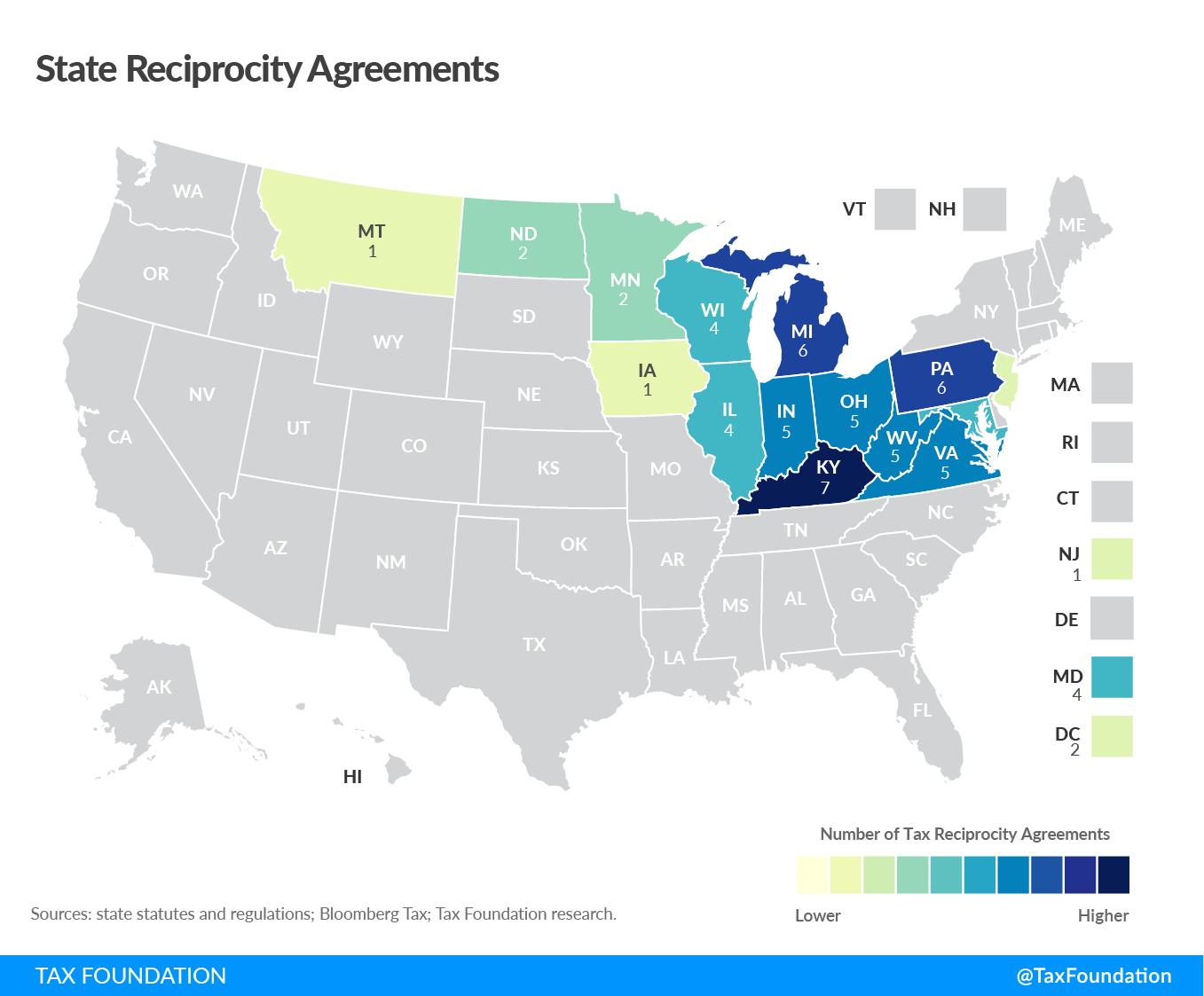Products You May Like
issues and explore the world through the lens of tax policy. Learn more about taxes with TaxEDU.
Working from home is great. The tax complications? Not so much.
Last year, 13 percent of full-time employees in the U.S. worked from home and 28 percent worked a hybrid model. Many of them worked in a different state than the one in which their employer was located. That’s millions of Americans who will face complicated income tax situations this filing season—some even getting taxed twice.
Where Is Income Taxed?
Generally, income can be taxed where you live and where you work. If those are the same state—as is typically the case with remote and in-person workers—then that’s where you’ll get taxed (with one exception; more on that below). But if you live and work in two different states—say, you live in New Jersey and commute into New York—then you could get taxed in both.
Thankfully, every state with an income tax offers a credit for taxes paid to another state. The catch: it won’t exceed the amount you pay on that income in your home state. So, your income wouldn’t be double taxed, but if the second state has higher income tax rates, you would be paying more than if you worked exclusively from your own state.
When Would I Be Double Taxed?
Five states tax people where their employer’s office is located, even if they work remotely and never set foot in the state. This is called the “convenience of the employer” rule, and Connecticut, Delaware, Nebraska, New York, and Pennsylvania have it, though they differ on the details.
If your employer is based in one of these states, but you’re working elsewhere for your convenience (not because your employer requires it), then you might pay income taxes both in the state where you live and work and in the state where your employer is based, without an offsetting credit.
For example, say your company is based in New York but you work remotely in California. Because you live and work in California, the state expects you to pay taxes on the income you earn there. But because New York has a convenience rule, it also expects you to pay taxes on the income you earn through your New York-based company. You’d pay income taxes to both states.
What If I Commute across State Lines?
For the hybrid or in-office workers commuting across state lines, tax season could bring headaches. While living in one state and exclusively working in another just means you have to file two income tax returns and receive a credit, splitting your work days between different states means you owe taxes proportionate to the time worked in each state. Calculating that can get messy.
Luckily, there’s a solution—state reciprocity agreements. Under these agreements, neighboring states decide to tax cross-border workers only in the states where they live. There are currently 30 reciprocal agreements across 16 states and the District of Columbia (to see if your state has one, click here).
Not only do reciprocity agreements benefit workers, but they’re also good for states themselves. Higher-tax states can maintain job opportunities while lower-tax states can attract residents—and both would enjoy easier administration and reduced compliance costs for their taxpayers.
Remote and hybrid work arrangements are modernizing the U.S. economy; state policymakers should modernize their tax codes with it.
Note: This post is for informational purposes only and not intended as advice. Please talk to a designated tax professional before making tax planning decisions.
Stay informed on the tax policies impacting you.
Subscribe to get insights from our trusted experts delivered straight to your inbox.
Share
